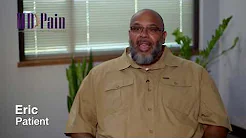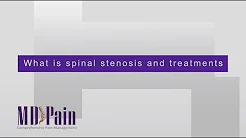Neuropathy Treatment Denver
If you’re experiencing pain or a tingling sensation in your hands or feet, you may have neuropathy, or damage to your peripheral nerves. Starting treatment early may help prevent progression of the condition. Metro Denver Pain Management (MD Pain), with an office in Denver, Colorado, specializes in the management and treatment of neuropathic pain and can help you. Call today for a consultation or book an appointment using the online booking button.
How Neuropathy Affects Quality of Life
Did you know that more than 20 million people in the United States have some form of neuropathy? This condition, which typically manifests itself as pain, tingling, and other uncomfortable sensations, causes a disruption in the way nerves communicate.
Women are disproportionately affected by this condition, and the instances of neuropathy spike dramatically after age 50.
Besides discomfort, other neuropathy effects include infected wounds, bladder and digestive troubles, and an increased risk of falling.
Common Causes of Neuropathy
There’s a long list of lifestyle, environmental and genetic factors that can lead to neuropathy, including:
- Diabetes
- Chemotherapy
- Environmental toxins
- Infections
- Vitamin deficiencies
- Autoimmune conditions
- Nerve trauma
- Chronic illnesses
- Alcoholism
- Genetic mutations
Determining the root cause of neuropathy in our patients allows us to identify and administer the most effective treatment options. At MD Pain, we take a multidisciplinary approach to alleviating and eliminating symptoms.
5 Types of Neuropathic Pain
The human body has more than 7 trillion nerves, so depending on where the damaged nerve is located, you may have more than one form of neuropathy.
- Peripheral Neuropathy: Most people associate neuropathy with peripheral neuropathy, though there are still several other forms. As the name suggests, peripheral refers to extremities like arms, legs, hands, and feet. Common symptoms of peripheral neuropathy include muscle weakness and numbness.
- Autonomic Neuropathy: Autonomic refers to the unconscious or involuntary part of the nervous system. Our autonomic nervous system “automatically” performs various functions, including breathing, digestion, heart function, blood pressure, and more. When autonomic nerves are damaged, it can lead to issues with everyday biological functions, like going to the bathroom or controlling reflexes.
- Focal Neuropathy: Think of this form as neuropathy as focused on a particular area of the body, which is usually the result of injury or infection.
- Proximal Neuropathy: When your extremities feel numb, you likely have a form of proximal neuropathy. Other symptoms include tingling and a “pins and needles” sensation.
- Diabetic Neuropathy: Patients with diabetes can develop diabetic neuropathy. The most commonly affected areas of the body are the hands and feet. Symptoms of diabetic neuropathy can range from mildly uncomfortable to fatal.
Why Choose MD Pain for Neuropathy Treatment?
At Metro Denver Pain Management (MD Pain), we have a reputation of achieving favorable outcomes for our patients. Our high success rate is a result of our dedication to finding the underlying cause of neuropathy before developing a treatment plan.
For example, if neuropathy has been caused by an infection, we first address treating and curing the infection. If neuropathy results from nerve pressure, we determine what is causing the pressure and alleviate it. We have numerous treatment modalities, and we welcome the opportunity to further discuss these options with you or a loved one.
We appreciate that every patient is unique, and there is no single one-size-fits-all solution that works uniformly. Instead, we custom-tailor treatment plans to fit the individual needs of our patients. From pain management to nerve regeneration, our patients rely on us to use our experience and expertise to reduce and eliminate pain quickly.
Neuropathy Q & A
Neuropathy, also referred to as peripheral neuropathy, is a condition that damages the nerves that send the messages from your brain and spinal cord to the rest of your body. Your peripheral nerve damage can have any number of causes, including infection, injury, or an inherited condition.
Certain health conditions may increase your risk of developing neuropathy, including diabetes, alcoholism, and kidney disease.
Symptoms of neuropathy vary depending on the type of nerves damaged.
- Sensory Nerves: Your sensory nerves are responsible for providing pain, temperature, vibration, and touch sensations from your skin. If these nerves are damaged, you may begin to feel -
- Numbness, pain, or tingling
- Sensitivity to touch
- Freezing or burning pain
These symptoms usually develop over a long period of time and most often affect the extremities, including the hands and feet.
- Motor Nerves: Your motor nerves control the actions of your muscles. Damage to these nerves may cause muscle weakness, lack of coordination, or frequent falls.
- Autonomic Nerves: The autonomic nerves manage all the functions in your body you don’t think about, such as digestion, blood pressure, and the beating of your heart. If your autonomic nerves are damaged, you may experience a change in bowel or bladder habits, uncontrollable sweating, or blood pressure changes that make you feel dizzy.
Metro Denver Pain Management (MD Pain) takes a multidisciplinary approach to the management of neuropathy, which includes treating the underlying cause of the damage along with the symptoms. As experts in pain control, your specialist may focus care on finding a treatment that reduces pain and the related symptoms.
Your treatment may include:
- Prescription medication to provide pain relief
- Topical pain creams for targeted relief
- Antidepressants
- Transcutaneous electrical nerve stimulation (TENS)
Your pain specialist may also refer you to physical therapy if you’re experiencing muscle weakness. In addition to providing you with exercises to improve strength, your physical therapist may also recommend assistive devices, such as braces or canes, to reduce your risk of a fall.



